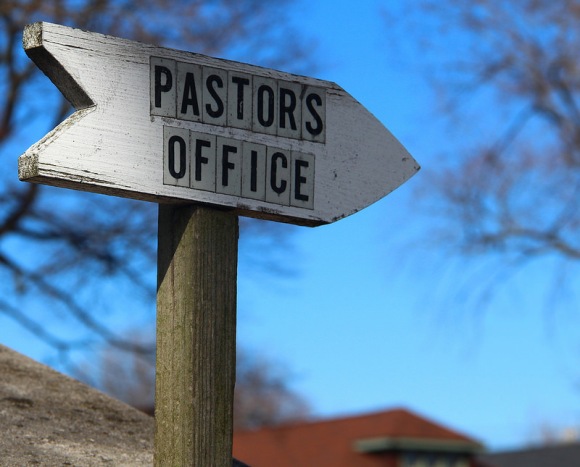Kevin Bacon danced his way onto the Tonight Show with Jimmy Fallon last week, reprising his role from the 1984 original version of Footloose. It… was… awesome!
Do you remember the story? It’s the classic tale of teenage rebellion, where the young rebel in tight jeans and a white t-shirt finds himself in a town where rock ‘n’ roll music and dancing are illegal. The bad guy: his love interest’s father, the local Bible-thumping town Pastor.
That’s right. The Pastor is the bad guy.
I wonder if a lot of people view the Pastor that way, today. He’s the morality police, here to take the fun out of everything. I wonder if people, in general, really have any idea of what a Pastor is and does.
I was recently asked to be interviewed about what it means to be a Pastor. I could easily recall my seminary training, the books I’ve read, and the Biblical foundations of what it means to be a Pastor… Instead, I found myself thinking about the role that the Pastor actually plays in our post-Christian, postmodern culture, and how and why I actually do what I do.
Here, then, is my list of essentials of being a Pastor.
1. Available
Office hours are over. No one makes appointments to open a bank account anymore; you can do it with a few clicks of your mouse while you’re sipping your favourite latte at Starbucks. No one goes to a movie store to rent Footloose on disk, because you can watch it on demand. No one calls a church office and talks to a receptionist, because now we text each other, and the conversation happens anytime, anywhere.
Being a pastor means being in the people business. People matter. People’s lives matter. And people want to know that they matter to their pastor. So a Pastor is available to people when they text in the evening. Pastors engage the conversation on Facebook. Not responding, because it’s after office hours, just shows people that they aren’t important enough or that the popular perception of the Pastor is true: they’re out of touch with the culture and how people communicate.
2. Accessible
This is very similar to point #1, except that it’s not only about being responsive: it’s about being known. A Pastor that spends his days in the church office is a pastor that no one in the community knows. And it’s a pastor who doesn’t know the community, either.
If you’re not a church person, then you should know that your local pastors really, really care about you. In fact, we long for you to talk to us about life and relationships and jobs and parenting and dating and purpose and love and the things that keep us awake at night and and and… It’s just that most of us (and I’m sorry about this) still kind of expect you to come to us.
Today’s Pastor, on the other hand, recognizes that talking with people happens in the normal rhythms of life, and not in the stuffy offices of a building that the community often perceives as irrelevant at best, or invisible at least. In short, the Pastor should be recognized on the street or in the grocery store or in the coffee shop, and when he’s there, he needs to also be…
3. Approachable
A Pastor shouldn’t only be well-known in the community; a Pastor should be well-liked. This means that he not only is present in the community, but he is active in the community. Today’s Pastor makes a positive contribution by serving and volunteering, and by engaging with local organizations. Today’s Pastor doesn’t draw a line between the church and other community agencies, but seeks to find the places where there is overlap or where he can simply plug in and help when needed. Today’s Pastor doesn’t serve the community so that he can invite people to his church; today’s pastor serves the community because it’s the right thing to do and because that’s what people value today. It’s probably what Jesus would value, too.
It’s in the context of being active in the community where relationships are built. People like people who care about the same things that they care about. When you see someone in a coffee shop who you met while volunteering somewhere, aren’t you more likely to approach them and say hello? Today’s Pastor does life with people in the community, and so he understands the challenges of daily life that is common to everyone in the marketplace, the schools, and the neighbourhoods. And that makes the Pastor approachable.
* * *
The days of the local pastor as the respected, wise sage of the town like in Little House on the Prairie are long gone. The days of the Pastors of our cities being perceived as the judgmental rule-keepers like in Footloose should be just as far behind us. The biggest challenge for Pastors, today, is overcoming the irrelevant label. It begins by getting out of the church offices, and into peoples’ lives.
What would you add to this list?



